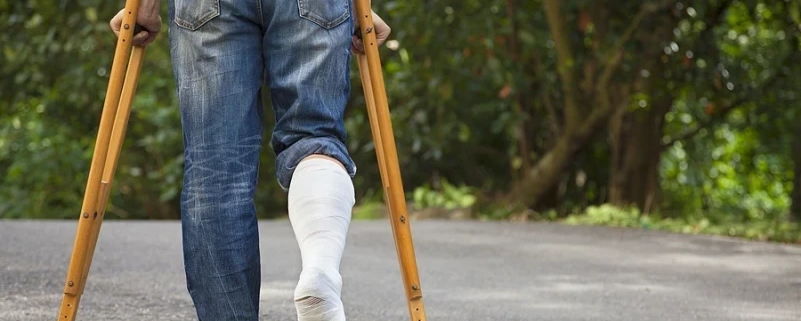The Importance of Gathering Evidence for Your Personal Injury Case
If you are injured due to someone else’s negligence, it is crucial to prove the validity of your claim. Insurance companies and opposing parties will not take your word for it. The burden falls on you to show that the accident happened, that someone else was at fault, and that you suffered real damages as a result. Without strong evidence, even a valid claim may be denied or undervalued. Understanding what to collect and how to use it can make all the difference.
Types of Evidence That Can Support Your Case
The more evidence you have, the stronger your case becomes. Different types of proof help demonstrate various aspects of your claim, including liability, damages, and the extent of your injuries.
Photographs and Video Footage
Pictures and videos provide undeniable proof of what happened. If possible, take photos of the accident scene, any visible injuries, and any property damage. If your injury occurred in a public place, security cameras or bystander videos may also support your claim. The more visual documentation you have, the harder it is for an insurance company to dispute your case.
Witness Statements
Eyewitness accounts add credibility to your claim. If someone saw the accident, get their name and contact information. Their statements may confirm details that support your side of the story. Witnesses who have no personal connection to you are especially valuable because they are seen as neutral parties.
Medical Records and Bills
Your injuries must be well-documented. Seek medical attention immediately after an accident, even if you do not think you are seriously hurt. Some injuries take time to appear, and delaying medical care could make it seem like your injuries were not related to the accident. Keep copies of all medical records, prescriptions, doctor’s notes, and receipts for treatment. These documents help prove the severity of your injuries and the financial impact they have had on you.
Police and Incident Reports
If law enforcement or a business owner filed a report, obtain a copy. A police report often includes important details, such as who was involved, witness statements, and whether any traffic laws were violated. While these reports may not be used as direct evidence in court, they can help support negotiations with insurance companies.
Expert Testimony
In some cases, expert opinions can help establish liability or the extent of your injuries. Medical experts, accident reconstruction specialists, or financial professionals may be used to explain complex issues. Their input can strengthen your case, particularly if the other side tries to downplay your injuries or deny fault.
Common Mistakes That Can Hurt Your Case
Knowing what to do is just as important as knowing what to avoid. Even with solid evidence, certain missteps can weaken your case.
Waiting Too Long to Gather Evidence
Time can work against you. Accident scenes change, witnesses forget details, and critical evidence may be lost. The sooner you collect documentation, the better. If you are unable to do so yourself due to your injuries, ask a friend or attorney to assist you.
Giving Inconsistent Statements
Your statements need to align with the evidence. If your version of events changes over time, insurance companies may question your credibility. Always be truthful and stick to the facts.
Posting on Social Media
Anything you share online can be used against you. Even innocent posts may be misinterpreted. Insurance companies and opposing lawyers may search your social media profiles to find anything that contradicts your claim. Avoid discussing your case or posting pictures that could suggest your injuries are not as serious as you claim.
Failing to Follow Medical Advice
If you do not follow your doctor’s recommendations, insurance companies may argue that your injuries are not significant or that you made them worse by not following treatment plans. Attend all medical appointments and follow prescribed treatments to demonstrate that you are taking your recovery seriously.
How an Attorney Can Strengthen Your Case
Collecting evidence is only the first step. Knowing how to use it effectively is just as important. An experienced personal injury attorney can help in several ways.
Investigating the Case
A lawyer can gather evidence that may not be easily accessible to you. They can obtain surveillance footage, request phone records, and interview witnesses to build a stronger case.
Communicating With Insurance Companies
Insurance adjusters are trained to minimize payouts. A lawyer understands their tactics and can present evidence in a way that strengthens your claim. They can also handle all communication to ensure that nothing you say is misinterpreted.
Working With Experts
Attorneys have access to professionals who can provide testimony to support your case. Whether it is a medical expert explaining the long-term impact of your injuries or an accident reconstruction specialist proving fault, expert input can make a significant difference.
Preparing for Trial
Most personal injury cases settle out of court, but sometimes, going to trial is necessary. If that happens, your lawyer will present the evidence in a compelling way to prove your case in front of a judge or jury.
Conclusion
The outcome of your personal injury case depends on the strength of the evidence you provide. Without solid proof, getting fair compensation can be challenging. The right documentation can make all the difference, and working with an attorney ensures that your case is handled correctly from the start.
At Kingbird Legal, we help injury victims build strong cases by gathering and presenting the necessary evidence. If you or a loved one has been injured due to someone else’s negligence, contact us for a consultation. We will review your case and guide you through the legal process to help you get the compensation you deserve.




